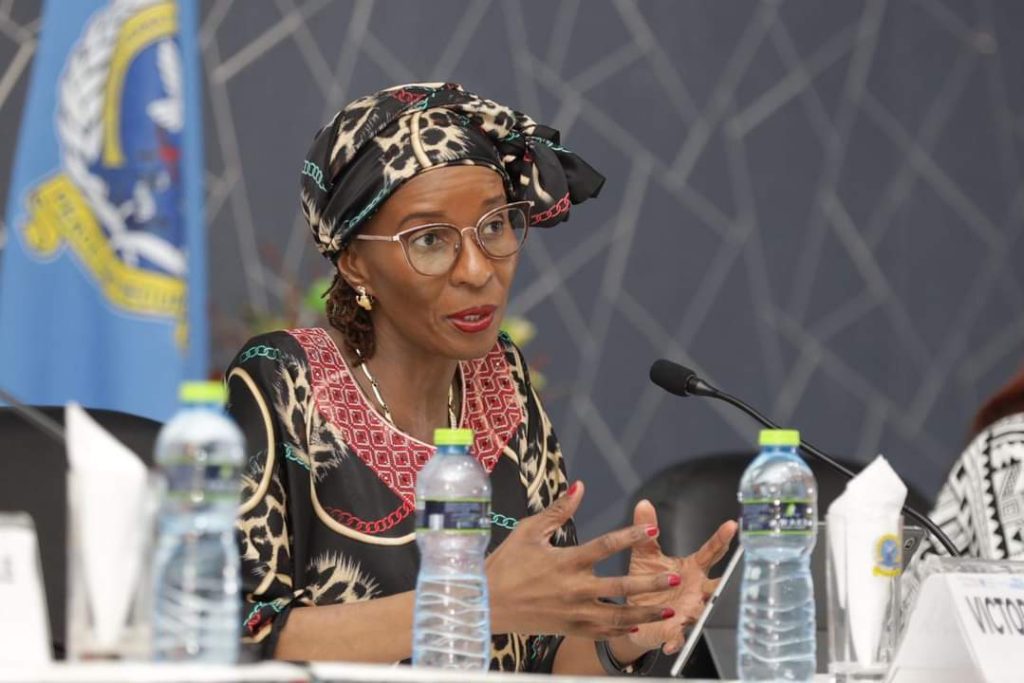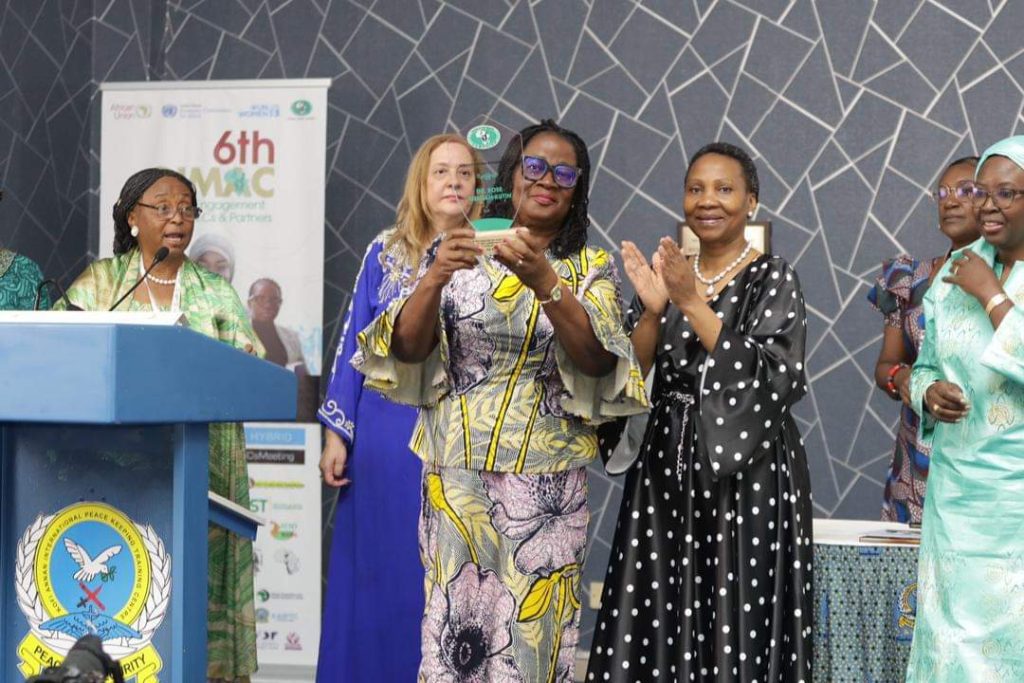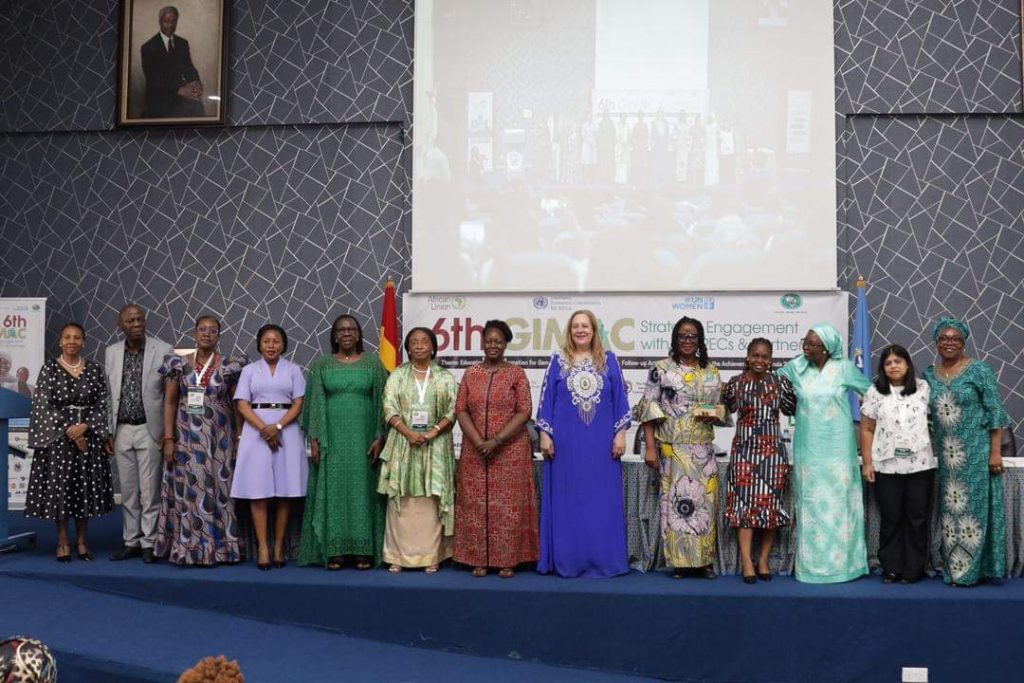By Eunice Hilda A. Mensah
Accra, July 18, GNA – Dr Olumide Ajayi, the Executive Director of the Africa Leadership Forum, has called on the public, school authorities and parents to be proactive and not reactional on educating girls about sexuality.
He said it was through a proactive approach that they could unearth the beliefs, thoughts and experiences of the girl child to offer them the right support.
He made the call at the Sixth Gender Is My Agenda Campaign (GIMAC) Network Strategic Engagement with the AU, Regional Economic Communities and partners in Accra on the theme: “Advancing Educational Transformation for Gender Equity and Sustainability towards Agenda 2063”.
Dr Ajayi underscored the need to sensitise the public on comprehensive sexuality education (CSE), saying it was not just about giving out contraceptives.
“It is also important to enlighten the media on CSE so they don’t twist issues surrounding this topic,” he added.
He advised victims of rape to seek help from nongovernmental organisations or civil society organisations focused on the areas of domestic violence and gender abuse to join them before reporting their predicaments to the police for investigation and justice.
Dr Ajayi admonished participants at the engagement meeting to help educate people, especially girls and young ladies on domestic violence, sexual abuse and comprehensive sexuality education through interpersonal relationships, their social media handles, and the mass media.
He also suggested that governments across the continent made collaborative efforts with civil society and individuals to ensure the safety and dignity of women and girls through the effective emergence and implementation of the Ending Violence Against Women and Girls (EVAWG) Convention.
Madam Victoria Maloka, the Acting Director of the African Union Commission Directorate of Women, Gender and Youth, speaking at the EVAWG Convention, said it aimed to enhance local policies and programmes at the micro level while providing more effective protection and support services for victims of violence.

At the macro level, it seeks to harmonize regional efforts, ensuring a unified and coordinated approach to ending violence against women and girls.
Menstrual poverty was an area that many girls suffered from, she said, adding that her office was, therefore, embarking on the distribution of sanitary pads to the needy ones.
Madam Maloka said it might be okay for girls to use contraceptives, however, they needed to be schooled on their side effects.
Ms Rose Shapi Kasongo, a Youth Advocate at Plan International, bemoaned the non-availability of many support structures for women to openly discuss issues related to menstrual poverty.
“This silence is often due to a lack of awareness about sexual and reproductive health rights, making it difficult for women to seek help or information,” she explained.
She also complained about the lack of access to clinics as well as stereotyping in health facilities, families and communities, explaining that that made many young women or girls reluctant to visit health facilities with some reproductive health issues including teenage pregnancy and sexually transmitted infections.
Ms Melissa Kubvoruno, Chairperson of GIMAC Young Women Network, recommended that youth envoy offices be set up in each regional economic community to enhance information flow and strengthen youth programmes.

“Additionally, we urge the institutionalization of the AU Youth Envoy’s office to ensure continuity and effectiveness,” she added.
The three-day engagement meeting saw participants going for breakout sessions and the session on Human rights and education transformation recommended that all state actors across the continent came together to ensure a robust implementation and monitoring of gender-responsive education policies.
They also suggested that campaigns were conducted to change societal attitudes towards education for girls and for programmes to be developed to provide equal educational opportunities for all genders.
At the end of the Sixth GIMAC Strategic Meeting, as well as the 12th Youth Advocacy Training, the GIMAC Network rewarded some women for their invaluable contributions to shaping the gender landscape in Africa.
The awardees included Professor Takyiwaa Manuh from the University of Ghana and former Director at the UN Economic Commission for Africa,

Dr Rose Mensah-Kutin, a feminist and Director of Abantu’s West African Regional Office, and Mrs Dorcas Ama Frema Coker-Appiah, a lawyer, women’s rights activist and the Executive Director of the Gender Studies and Human Rights Documentation Studies in Accra.
GIMAC Network is a network of African women and civil society organisations working towards the empowerment of women and girls in Africa, particularly through the implementation of key major regional and international gender equality instruments.

GNA